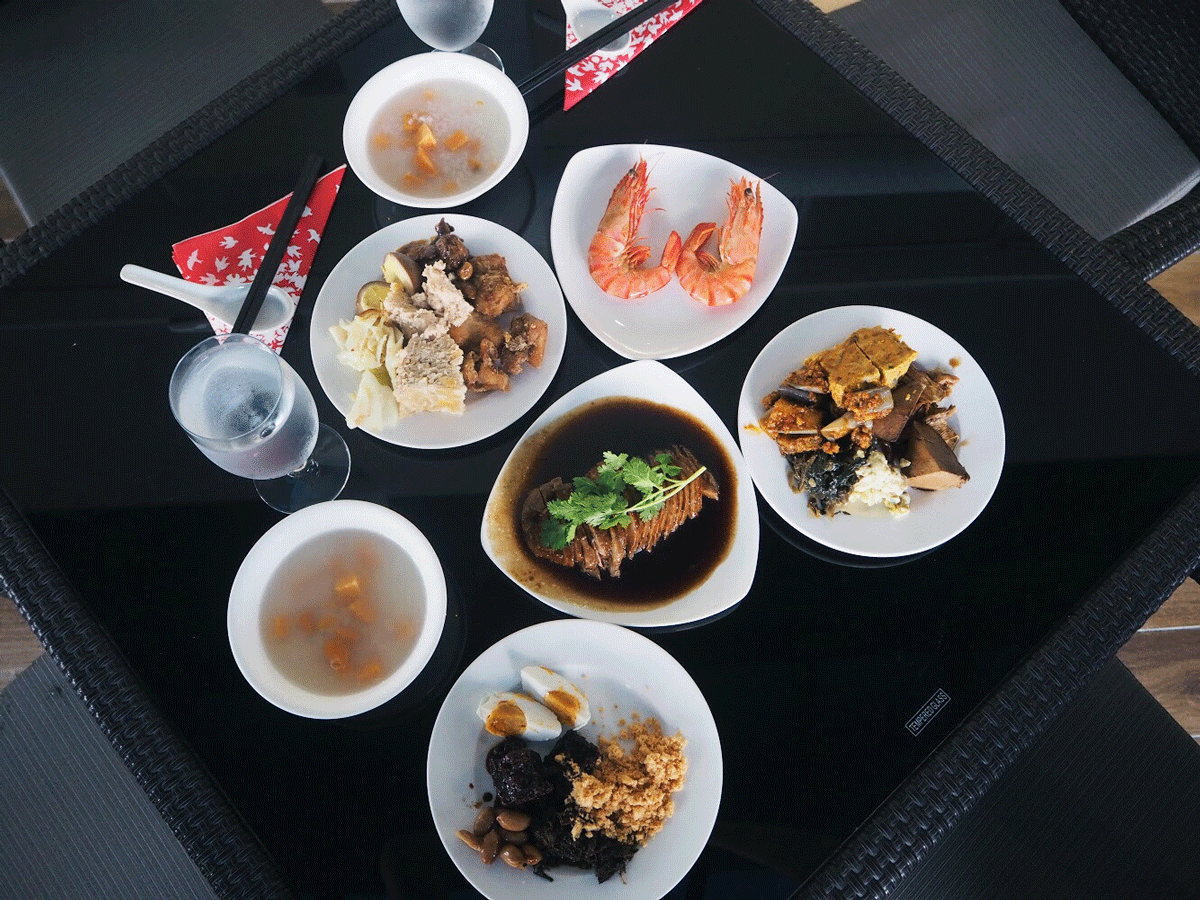After 2 months of trying and failing to secure a seat at The Assumption Restaurant for Training’s (The ART) monthly porridge buffet, I finally succeed.
29th September, 2017. Friday. 6 PM. I was ready.
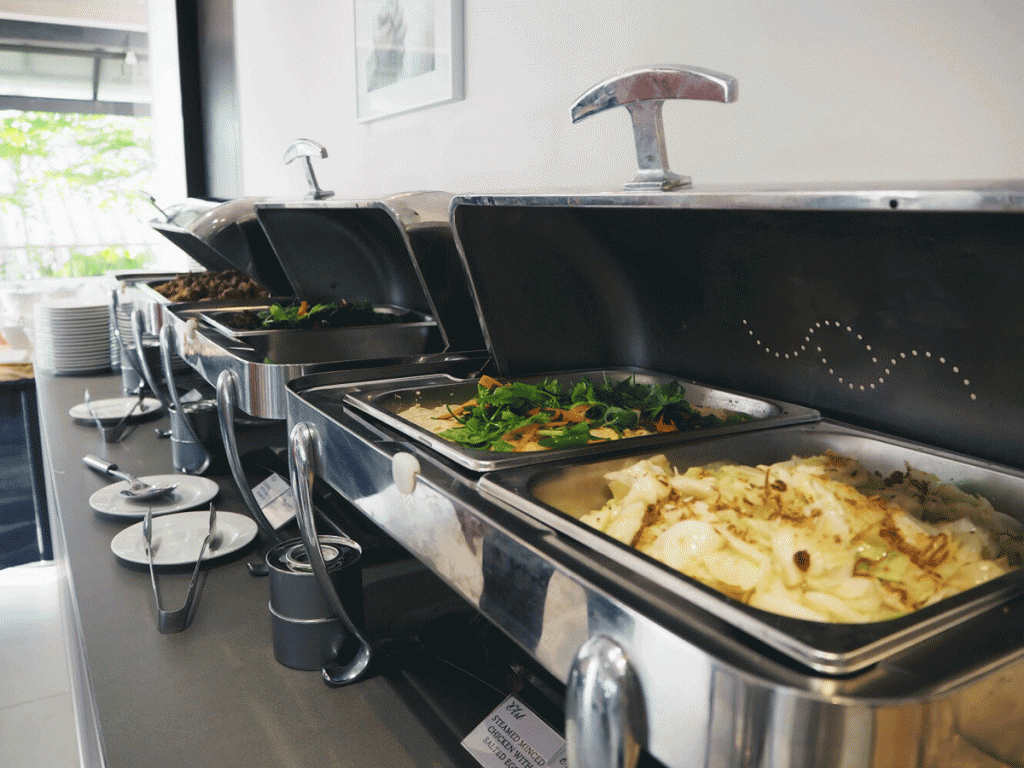
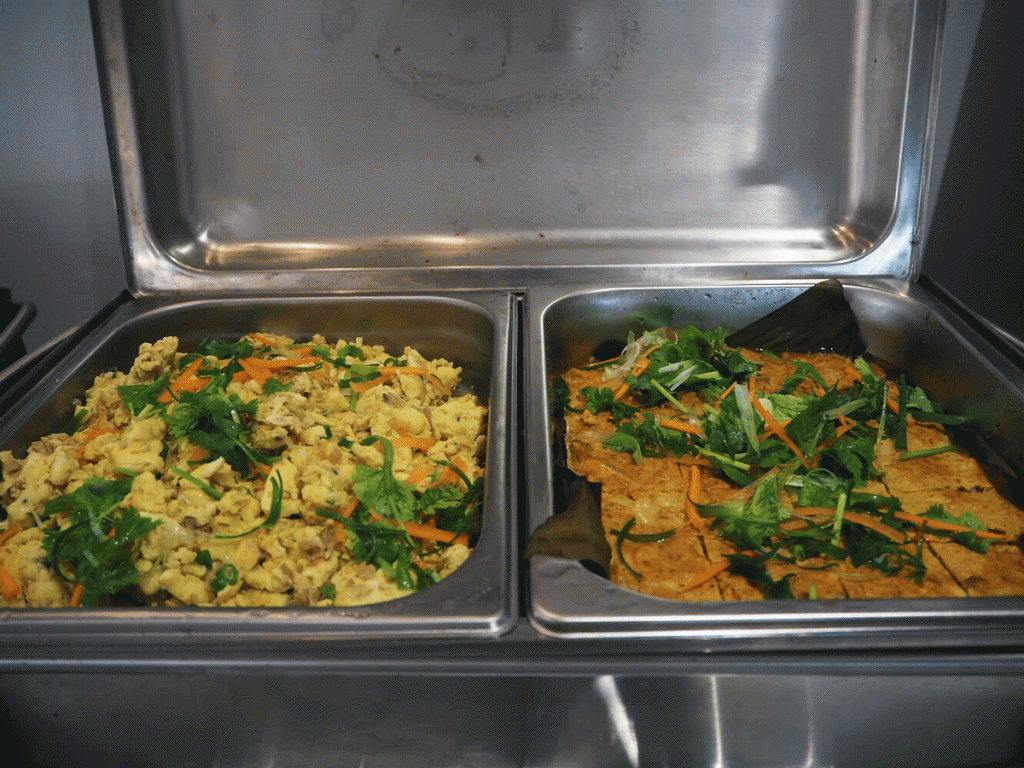
Take note: “If you want to eat here, best to make a reservation about two months in advance. It used to be one. Now two,” says John, a chef at The ART.
To just get the million-dollar question out of the way—yes, it’s worth the two month wait.
The porridge came in two variations – plain or with sweet potato. The latter was my favourite, warm and just the right silky-smooth consistency with a hint of sweetness.
The Har Cheong Kai chicken was a stand out in my opinion. Crispy on the outside yet tender and flavourful within. The tiger prawns blanched just right, arrived at our table pink, fresh and juicy, along with generous slices of braised duck that were lean yet still succulent. The fragrant smelling Otah and Sambal Brinjal were not only delicious, but added some welcome heat to the palate.
My only gripe lay with the the tau kwa which was slightly dry and not spongy enough. (But for $12, who’s complaining?)
Yet the food tells only half the story.
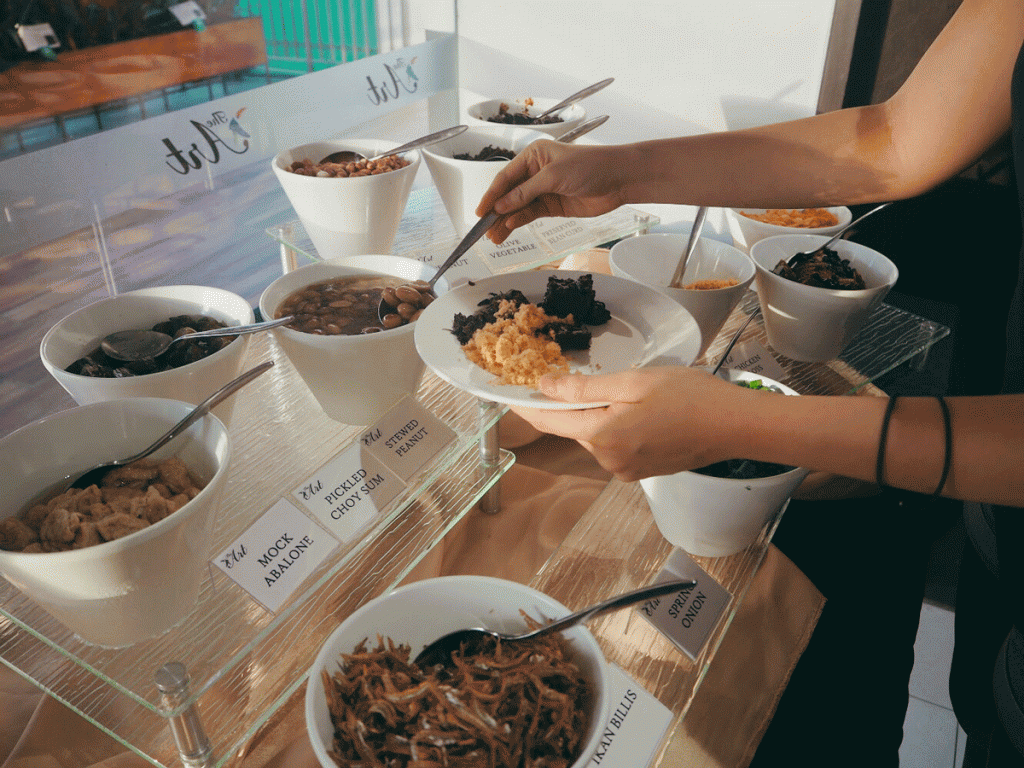
But APS isn’t your typical secondary school either. It’s a school that supports students aged 13-16 who are unable to access mainstream secondary school education.
When I first meet Shaun, Head of Department for Hospitality Services and Culinary Skills at APS for tea on a Wednesday afternoon, he emphasises the delicacy of the situation.
“It’s not something you shout about,” he says.
Hospitality Services and Culinary Skills are 2 of 6 vocational courses offered to students at APS alongside programmes in literacy, numeracy and character building. The ART was specifically set up to complement the 2 aforementioned courses to allow students to experience cooking for and serving real-life guests.
Whether they know it or not, Shaun tells me that diners at The ART aren’t just enjoying a meal but are instead supporting something bigger than that.
In his words, “It may seem small to us, but it’s not small at all to the students.”
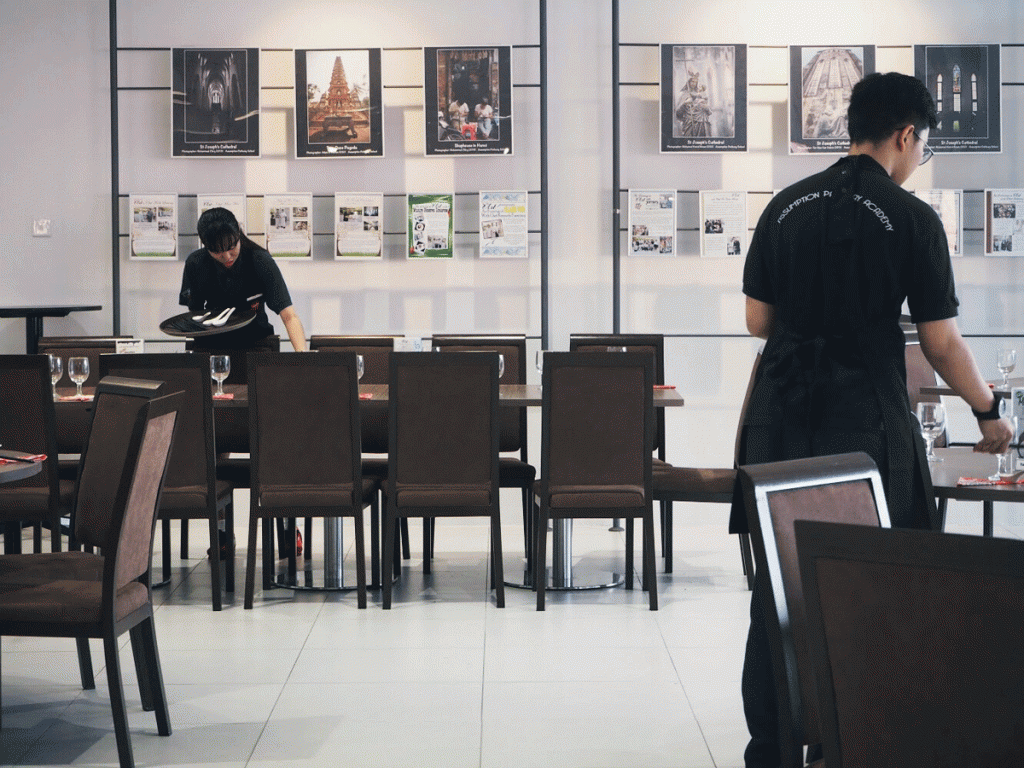
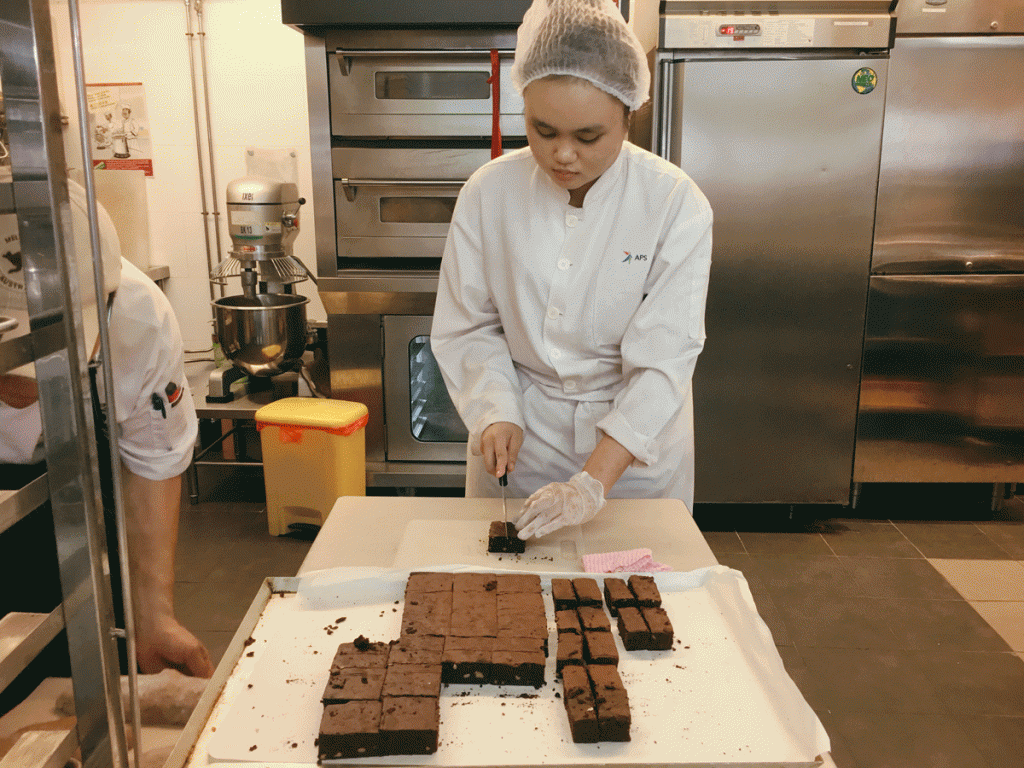
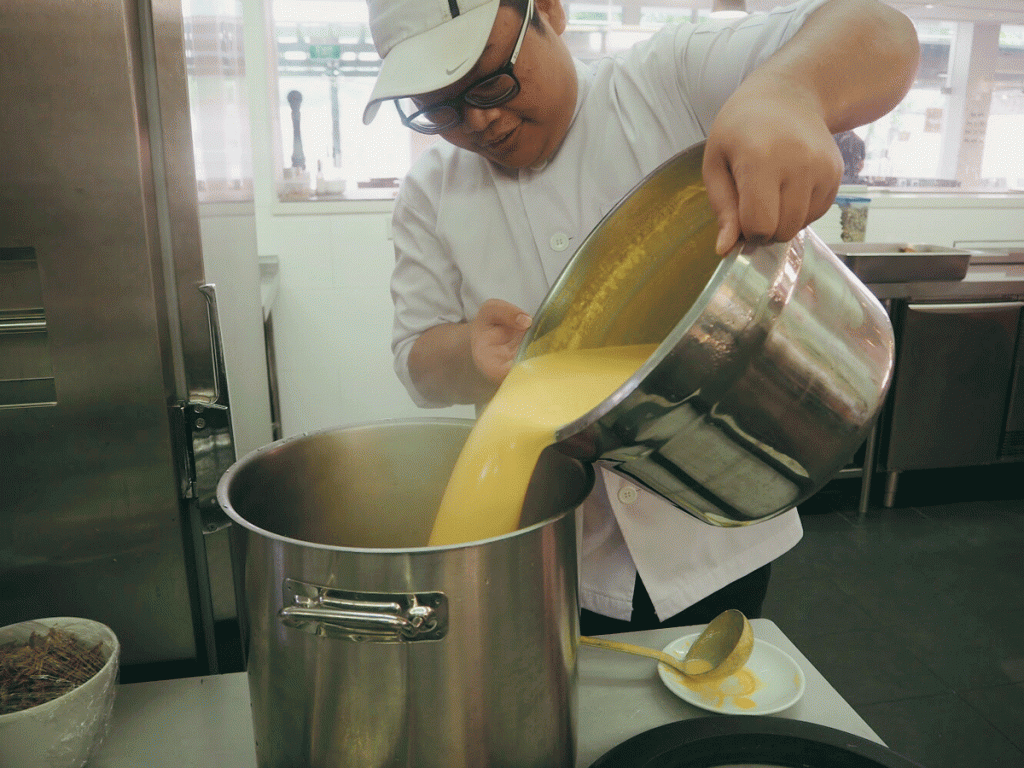
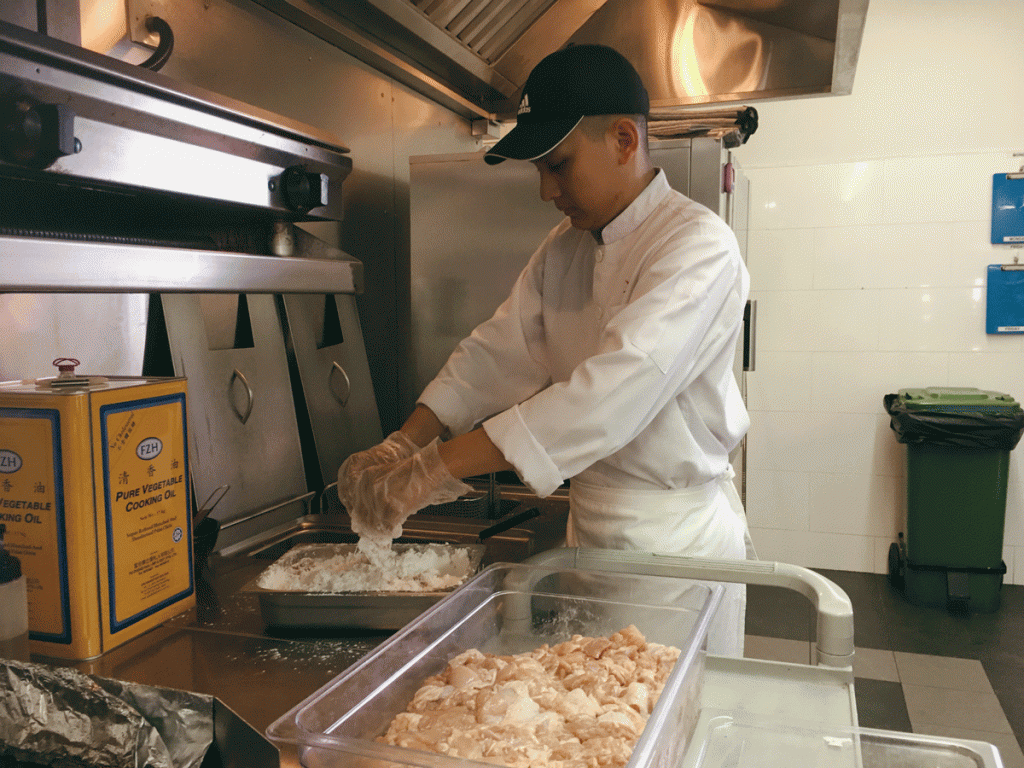
“Our students need additional time, support and understanding to be able to focus on their assigned tasks,” says Shaun.
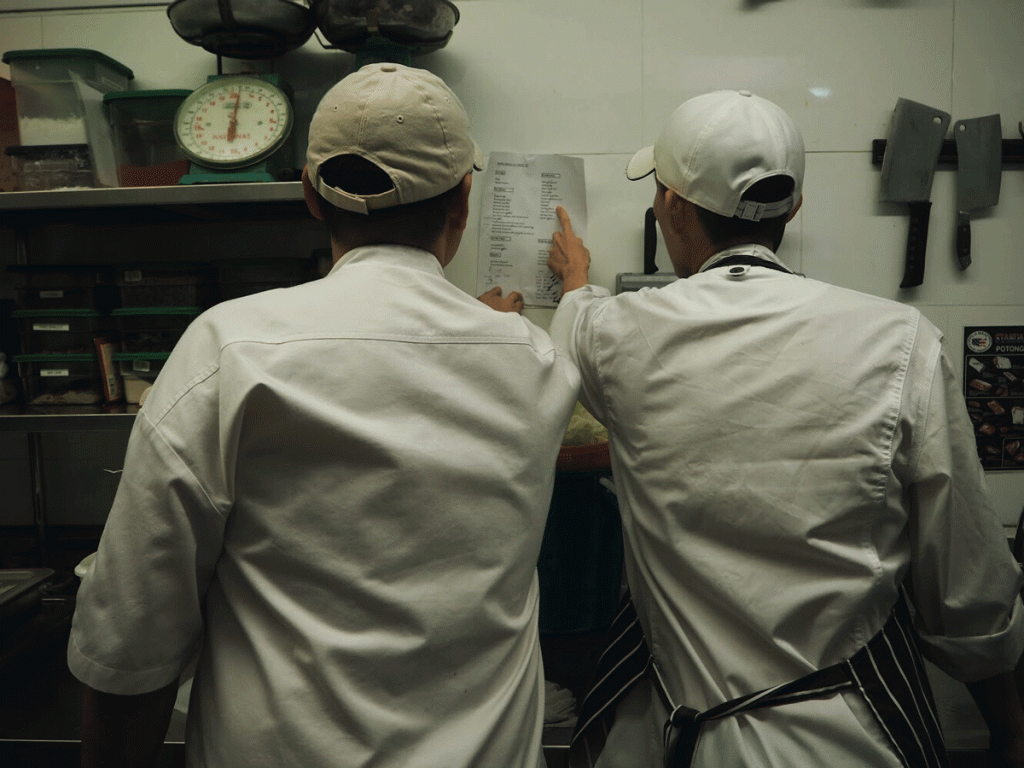
That is until Izzuddin, 17 this year, approaches me, hauling a big pot of spaghetti which he proceeds to set up atop a stove. He smiles a lot and I warm to him instantly. He’s not shy in the slightest, revealing within minutes his passion for photography and dislike towards reading.
“My parents used to make me to read a lot when I was young, and I find it really scary. You do writing right? You’re a writer. Must you read?”
Although his candid honesty catches me off guard, I reply with a nod. I suggest that since he’s older now, he can give reading another try.
He pauses for a while, then says, “I’m actually thinking of buying a kindle. It’s expensive but yeah. I’m thinking about it.”
Later, he shows me his Instagram, which contains pictures of himself, his family, and food.
“What do you think of my photos?” he asks.
Not waiting for my response, he says, “It’s not very good. I know. But I really like it. I really like it.”
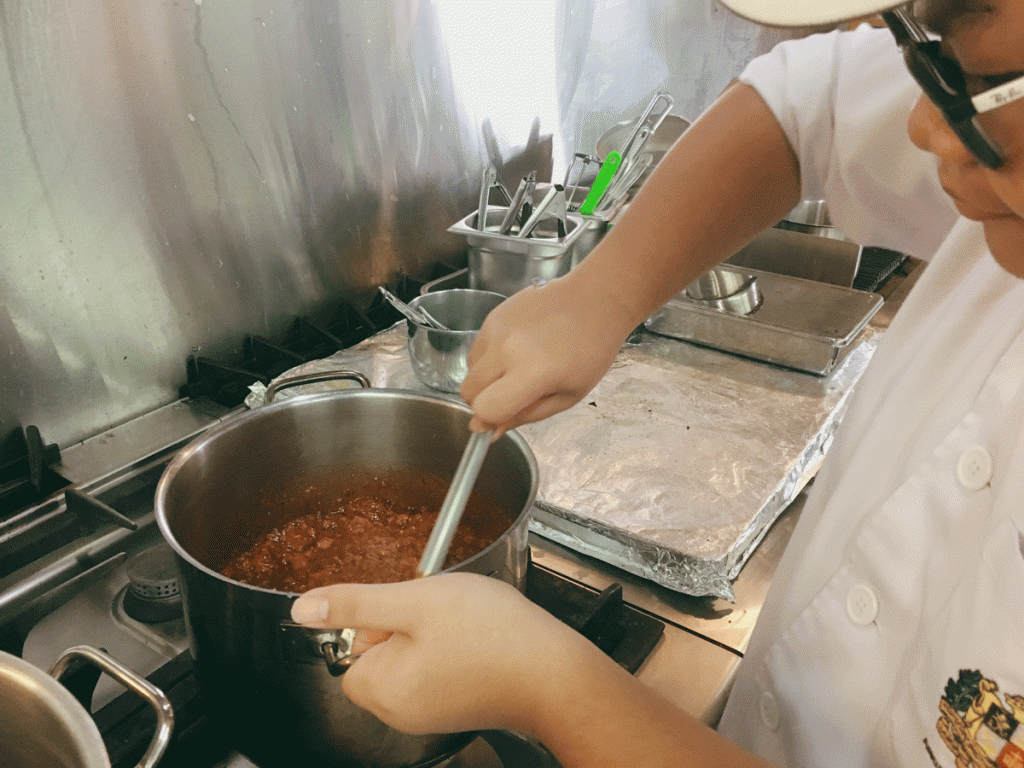
Sarah’s passion lies in clothes and drawing.
“I like going shopping and seeing what I should buy. But my mother keeps choosing my clothes for me. I cannot choose on my own.”
When I ask her what she’d rather be doing if she could do anything, she immediately chooses fashion. However, her mother doesn’t support her decision: “She says I cannot learn fashion because I cannot sew. I wish I can learn but no one teach me. My mother said I need to focus on improving my English and Maths first.”
Siti, on the other hand, is interested in writing. Specifically horror and mysteries.
“I’m working on something like this,” she says, and shows me her phone. The header reads: ‘Crown Of Games’, but before I can read anymore, she whisks it away giggling.
Shaking her head, she says, “I’m stuck at the beginning. Some people can write very long sentences. My elder sister can write to chapter 5 like that.”
“I cannot write long sentences, I think write to chapter 1 only,” she adds, with a light-hearted laugh.
It’s clear that none of these teenagers are looking for affirmation or validation, despite how quick they are to open up about their weaknesses and limitations.
But what I’m struck by is that despite me telling them that they can improve, that they can learn to write, learn to take pictures and sew, they still seem a little hesitant.
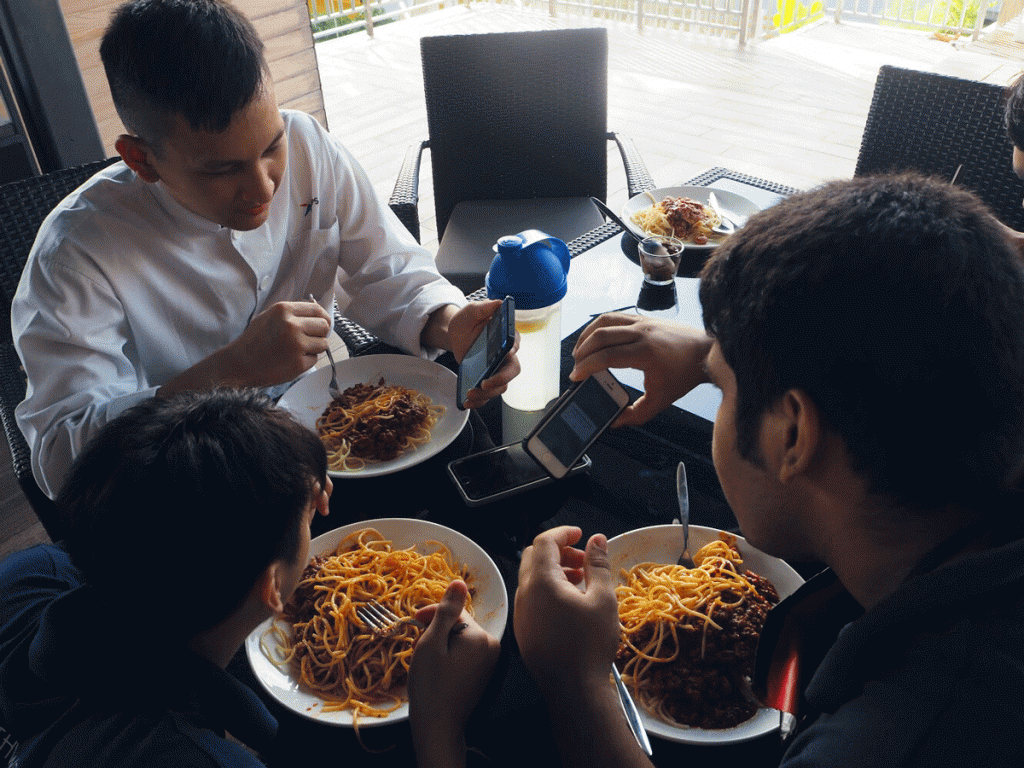
It’s for this very reason that Shaun makes an effort to call every student at APS he encounters ‘Sir’ or ‘Ma’am’.
And he has no plans to stop doing so anytime soon.
“I buy into the fact that people live up to expectations. I am confident that with consistent positive role modelling and daily reminders that they are of a ‘sir’ status, they will one day become just that.”
I think back to how Izzuddin first went out of his way to speak to me, although he didn’t have to. And when Sarah introduced me to the rest of The ART’s student service staff, how they each bothered to remember my name and shake my hand.
It says a lot. Especially since I’ve been treated with far worse manners by people older and far more capable and ‘deserving of respect’ than them.
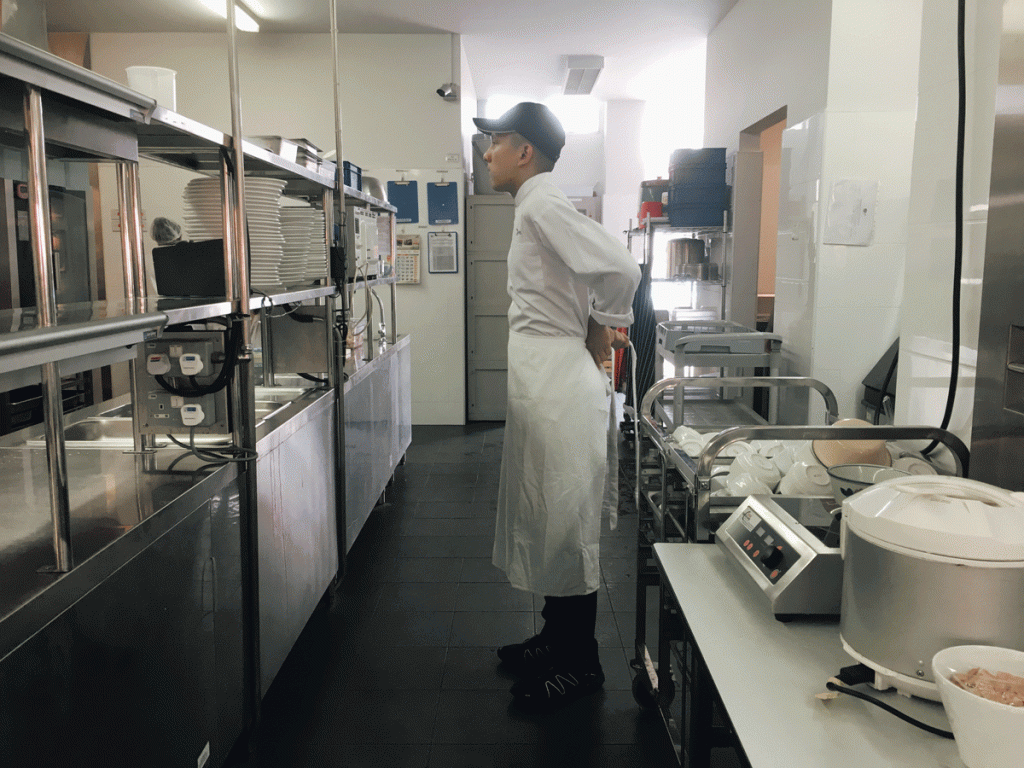
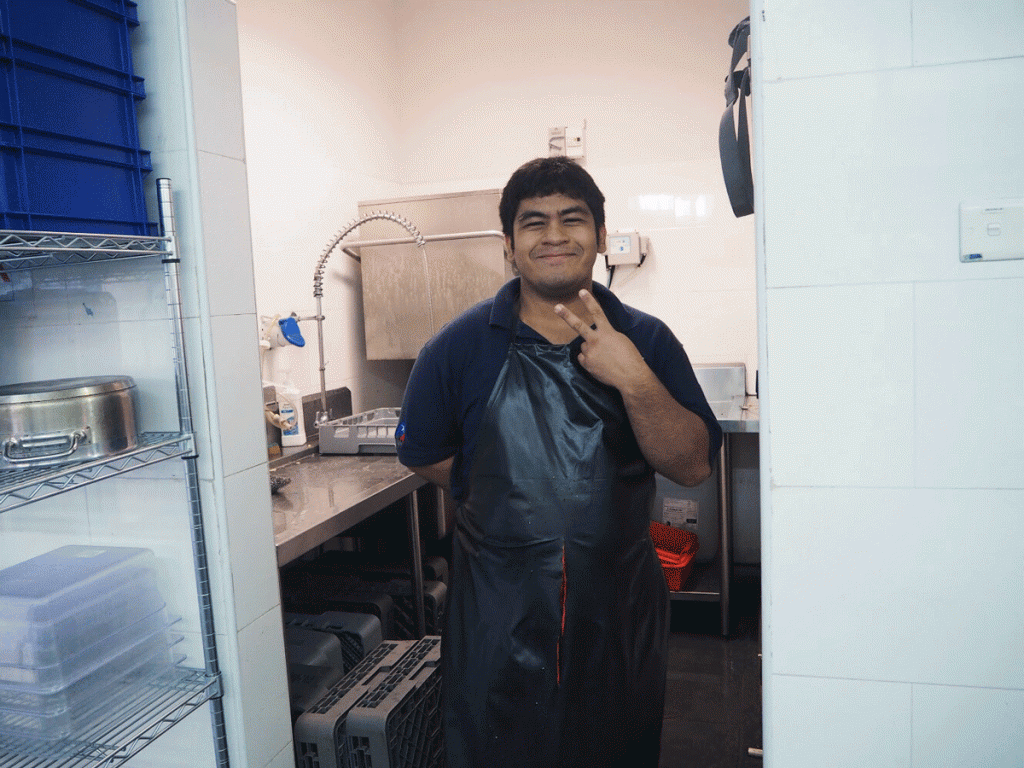
However, a common assumption amongst customers is that the students cook all the food by themselves.
They don’t. After all, they’re just students.
“Our goal is such that they can! But honestly, if they were that independent they wouldn’t be here,” Shaun tells me.
Such expectations however, largely stem from the fact that many of us fail to realise that we’re all different. Consciously or not, most of us are guilty for judging people based on our own capabilities and experiences without appreciating that not everyone is made the same way.
“When you come here, you learn to realise how lucky you are, and how much you take for granted,” says Shaun.
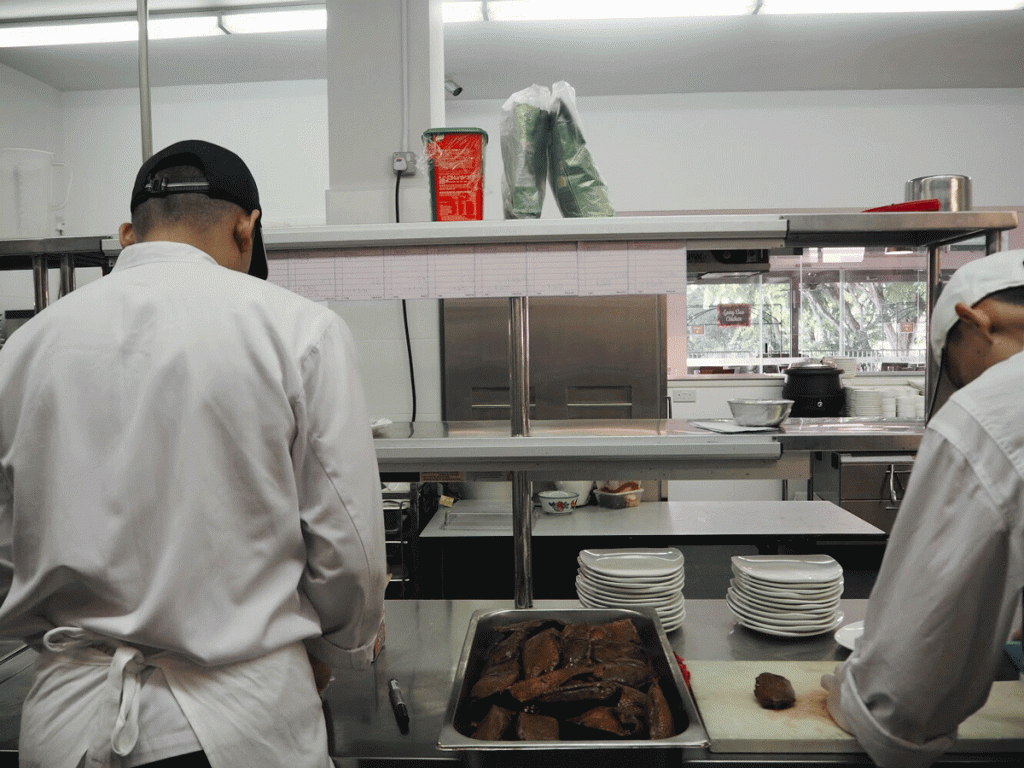
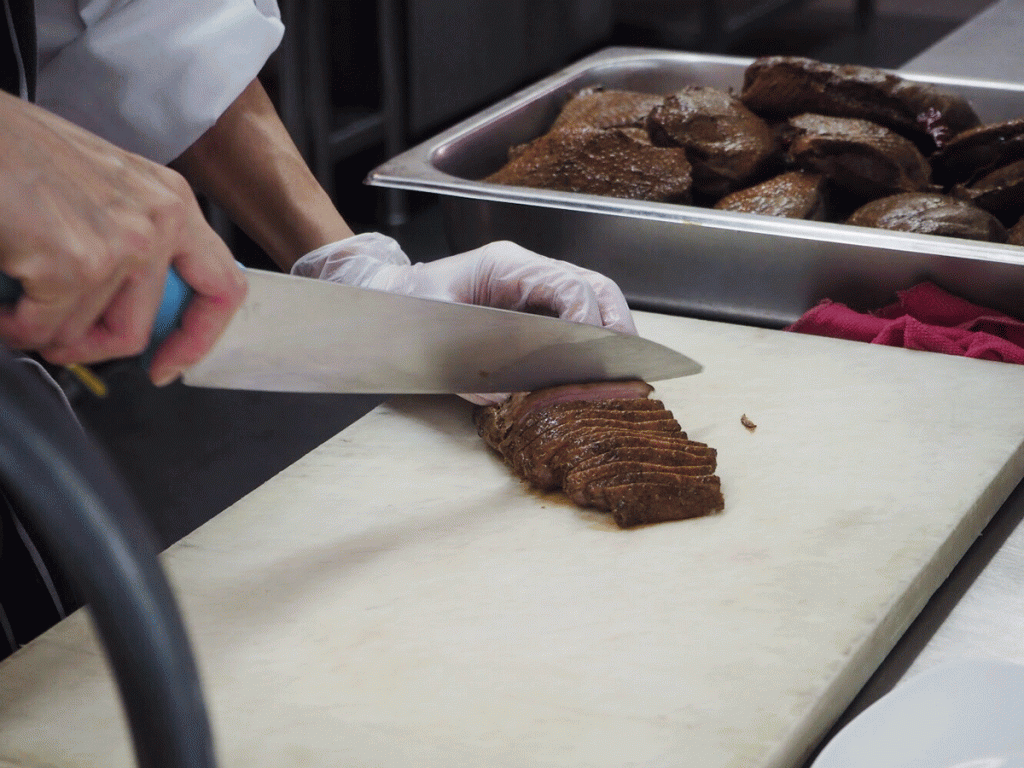
Before I leave, I enter the kitchen to bid them goodbye and shake their hands one last time.
From their expressions, I can tell they’re tired. But from the way their smiles reach their eyes, I can tell that they’re also happy. Happy for having pulled off yet another successful, sold out porridge buffet.
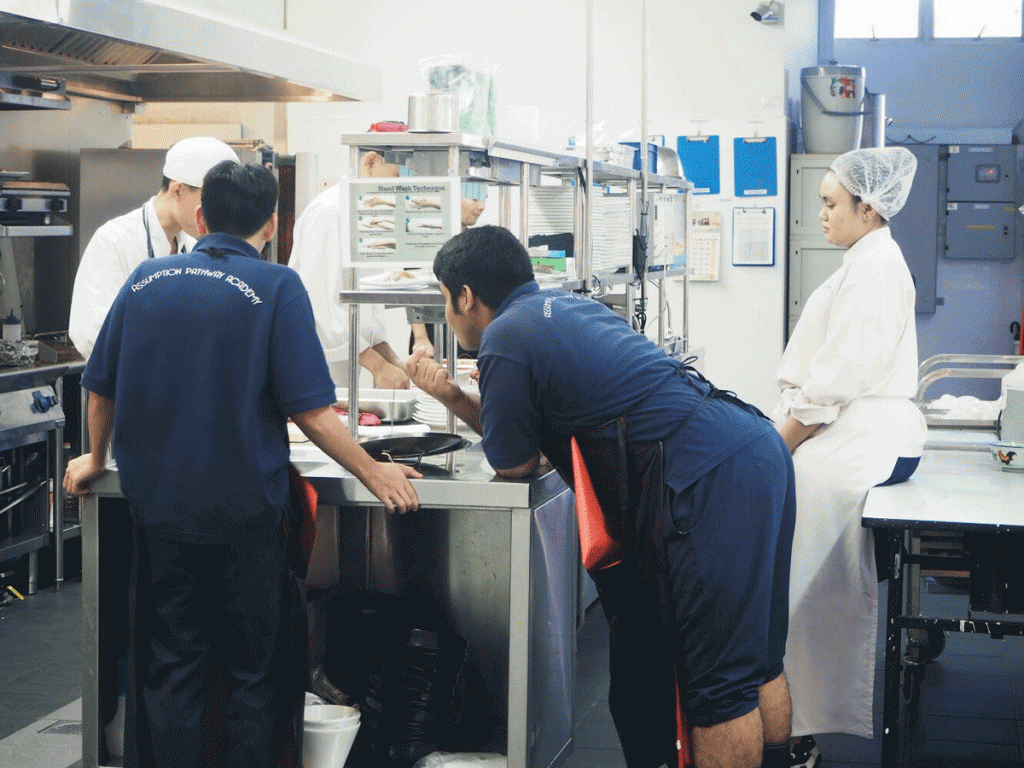
“These students need to train around the concept that there is a guest. They need to know the intention, the purpose, the meaning behind what they do. If they forget who or what they’re even doing this for, then it’s lost. But if they get that, then everything begins to fall in place,” says Shaun.
It’s the students that matter, and we as diners are merely there to help them grow (and as a bonus, get a great meal.)
For the students I met at The ART, most of them may never have a chance to access mainstream education. Some may move on after graduating to ITE, and those who can’t or don’t want to will start work or move on to Assumption Pathway Academy and continue to work at The ART.
But for now, the success of the porridge buffet is also every bit their success. And I hope it brings them validation of their capabilities, along with a sense of pride and accomplishment. More than anyone else here tonight, they deserve it.
As I’m waving goodbye, they joke amongst each other that they intend to print out this article once it’s published, and frame it up in the kitchen. Rauf tells me he hopes I took a good picture of him, one that he can use for his Facebook profile. I think to myself that hope I did too.
As the kitchen door swings shut, the laughter carries on.

